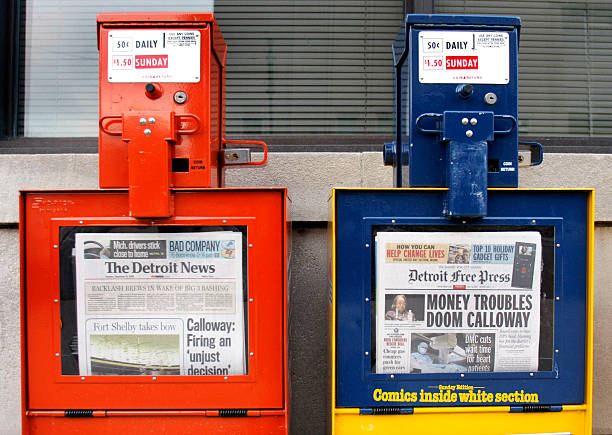The ‘Wicked Local’ franchise of weekly Massachusetts newspapers announces they will cease printing newspapers. For example, The Bedford Minuteman says their final print edition will be May 5, 2022. The newspaper tells readers that this “business decision reaffirms The Bedford Minuteman’s commitment to the sustainable future of local news.” Further, the publisher says they understand the value readers find weekly in the print editions. However, they say, the company will focus on “digital news presentation” going forward.
Going Digital Only
According to Boston.com, 19 or more weekly newspapers will stop printing and go online only. Furthermore, “nine other weeklies will be merged into four papers”. ‘Wicked Local’ owner, Gannett, tells Boston.com that the move is to “better align our portfolio of products with our on-going digital transformation.”

The Boston Business Journal says Gannett has “been whittling down the number of its print papers nationwide for the past couple of years.” The Business Journal’s analysis shows a 24% reduction in local news websites over the past 2 years.
Home Delivery Experiments Upset Routines
Gannett has experimented with reducing home delivery since at least 2008. In that year, the firm’s Detroit newspapers switched to home delivery three days a week. Certainly, the reassurances echo today’s announcement: a promise of expanded online offerings.
In 2009, the Detroit Free Press and Detroit News started Thursday, Friday and Sunday home delivery.

The Wall Street Journal reported that the end of Detroit home delivery touched on “many forces now upsetting our routines.”
“I recognize that this will be disruptive to older citizens,” says David Hunke, publisher of the Free Press at the time. But, he adds, “I can’t drive the paper to your home every day and maintain this business model.”

The Journal told the tale of older readers who made a daily ritual of reading obituaries with their coffee. Funeral directors were afraid of the word not getting out as newspapers phase out. Therefore, eliminating all print editions is sure to disrupt.
Impact In Question
Greg Reibman is President of the Charles River Regional Chamber. He recently reflected on the importance of the papers. Furthermore, he mentions the Watertown Tab & Press, first published in 1870. To be clear, that paper and the others documented many facets of the local community.
Reibman has borne witness to the decline of the local papers. For example, the Newton Tab had just one out of town obituary in a recent issue.



